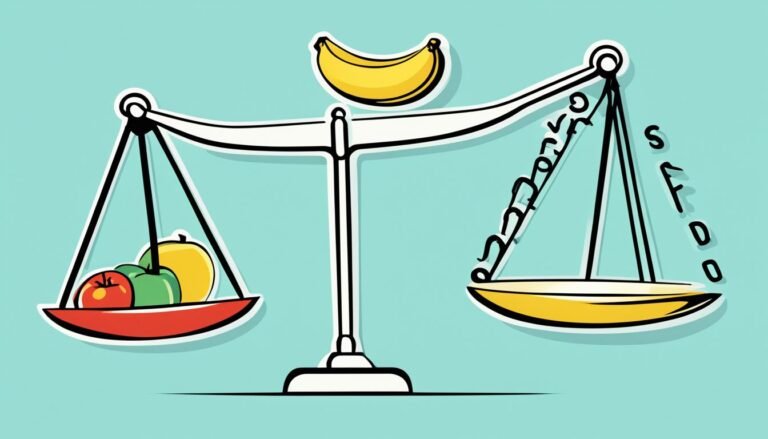Critical Thinking: Challenging Established Business Theories
In today’s fast-paced world, staying ahead means thinking differently. Critical thinking is key. It lets you question what’s taken for granted and find new ways to solve problems. But are you using critical thinking to change your business and shake things up?
This article shows how critical thinking can lead to big changes in business. It can help you challenge old ideas and find new ways to stand out. By questioning what we assume and seeing things from new angles, companies can come up with innovative ideas. Are you ready to rethink your business for the future?
Importance of Critical Thinking in Business Education
In today’s fast-changing business world, thinking critically is key to success. A 2016 report showed a 158 percent rise in demand for critical thinking skills. Employers now see it as the most important skill they want in new hires. Critical thinking helps leaders deal with the complex global economy by making rational judgments and effective decisions.
Fostering Rational Judgment and Decision-Making
The business world is full of information, fast changes, and tough competition. To succeed, professionals need to analyze data, evaluate risks and benefits, and solve complex problems. Critical thinking is vital for these skills, helping people make smart and strategic choices.
Advancing Critical Thinking Pedagogy
Even though critical thinking is crucial in business education, efforts to improve it are limited. There’s not much proof that critical thinking is being taught well in business courses. Schools like the Association to Advance Collegiate Schools of Business and top schools like Stanford and the London Business School focus on critical thinking. Yet, there’s still a lot to do to integrate critical thinking into the business curriculum.
The 21st Century Bloom’s Taxonomy model gives teachers a way to improve critical thinking skills. It helps students get ready for the challenges of today’s business world.
Framework for Critical Thinking Skills Development
In today’s fast-changing world, critical thinking skills are key in business education. They build on Benjamin Bloom’s work. This has led to updates in Bloom’s Taxonomy. These changes help students get the skills they need for the modern job market.
Bloom’s Taxonomy is a well-known way to sort out learning goals. It has been updated for the 21st century to meet new global market needs. This updated version helps students learn in a structured way. It starts with basic skills like Remembering and Understanding, then moves to more complex skills like Applying, Analyzing, Evaluating, and Creating.
Bloom’s Taxonomy and 21st Century Revisions
This paper uses Bloom’s Taxonomy to help students improve their intellectual skills. It offers a structured way to develop critical thinking skills. By doing activities at each level of the taxonomy, teachers can help students think more critically. This is crucial for future business leaders in the 21st century.
“The ability to think critically is not just a survival skill in the 21st century – it is a fundamental requirement for success in the global knowledge economy.”
Critical Thinking: A Survival Ability
In today’s fast-changing business world, critical thinking is key to surviving and thriving. It’s about growing your thoughts, analyzing, questioning, and reflecting on what you learn. This skill is crucial for solving problems and learning new things throughout your life.
Kunsch et al. (2014) say that advanced critical thinking is needed to tackle complex business issues. Behar-Horenstein and Niu (2011) add that it’s vital for making smart choices in our global economy. With change happening faster, businesses need to handle a complex and uncertain world.
Being good at critical thinking helps you tackle unexpected challenges head-on. It’s a must-have skill in today’s business world. It helps you make rational decisions and see things from different angles. This way, you can find new solutions to problems.
“Critical thinking is not just a nice-to-have skill but a necessity for individuals and organizations to thrive in the 21st century.” – Harvard Business Review
The need to think critically will grow as businesses change. It’s important to keep learning and applying these skills. This will help professionals face challenges and grab new opportunities.
By seeing critical thinking as a key skill, businesses can build a team that’s adaptable and innovative. This team will be ready to handle the modern business world’s challenges. It will lead to sustainable growth, a competitive edge, and success in a tough market.
The Tradition of Critical Thinking from Ancient Times
The history of critical thinking goes way back to ancient Greece. Socrates started it by questioning everything. He made people think deeply by challenging common beliefs.
Other famous thinkers like Plato and Aristotle followed his lead. They taught us to look beyond what we see on the surface. They showed us the importance of systematic thinking.
Socrates and the Greek Skeptics
Socrates is often called the “father of Western philosophy.” He taught his students to question everything. He believed in looking closely at ideas before accepting them.
Later, thinkers like Pyrrho and Sextus Empiricus took this idea further. They said we can’t really know anything for sure. So, it’s best to doubt everything.
Renaissance and Enlightenment Thinkers
In the Renaissance and Enlightenment, thinkers in Europe applied critical thinking to many areas. They looked at religion, art, society, and politics in new ways. Scholars like Francis Bacon and Thomas Hobbes questioned old beliefs and valued evidence.
Thinkers of the Enlightenment, like Voltaire and Montesquieu, pushed critical thinking even further. They valued open discussions and questioned those in power. Their ideas influenced many areas, including economics and psychology, in the 19th and 20th centuries.
Critical Thinking: Challenging Established Business Theories
In today’s fast-changing business world, critical thinking is key for companies wanting to challenge established theories and find new ways. By questioning assumptions and looking at things from new angles, companies can make big changes and think differently.
Thinking differently helps leaders try unorthodox strategies and reimagine business models. This fresh way of thinking often leads to outside-the-box solutions that can make a company stand out.
- Most teachers are unaware of the levels of intellectual development that people go through as they improve as thinkers.
- Significant gains in the intellectual quality of student work will only be achieved when critical thinking is properly cultivated through predictable stages.
- The success in instruction is deeply connected to the intellectual quality of student learning.
Creating a culture that values critical thinking helps companies challenge old ideas and find game-changing opportunities. This disruptive thinking is crucial for companies wanting to lead and adapt in today’s complex market.
“It is possible for students to graduate from high school or college and still be largely unreflective thinkers.”
Teaching critical thinking in a company lets employees question assumptions, reimagine business models, and rethink conventions. This can lead to big changes and unorthodox strategies that help with growth and innovation.
Developing Critical Thinking Competencies
In business education, learning to think critically is key. Critical thinking is more than just an academic topic. It’s a skill that helps people deal with today’s complex business world. By using critical thinking principles and progression processes, companies can train their teams to face challenges, make smart choices, and innovate.
Progression Processes and Principles
Success in critical thinking programs depends on how well they develop, progress, and test people. Companies need to work on developing critical thinking competencies by solving real-world problems and giving clear instructions. This method improves how people apply critical thinking in real situations and matches the critical thinking pedagogy that values learning in context.
To improve critical thinking skills, companies should use proven processes that start with basic thinking skills. These steps include:
- Observation and research skills to gather relevant data
- Analysis to prioritize information and draw logical conclusions
- Inference to synthesize insights based on available evidence
- Communication to effectively convey findings to stakeholders
- Problem-solving to devise practical solutions to complex issues
By following these progression processes and critical thinking principles, companies can build a team that makes informed, data-based decisions and grows sustainably.
“Critical thinking is the intellectually disciplined process of actively and skillfully conceptualizing, applying, analyzing, synthesizing, and/or evaluating information to reach an answer or conclusion.” – Michael Scriven
Improving critical thinking competencies requires a customized approach. Companies must design their programs to fit their unique needs, industry, and the changing job market of the 21st century. By investing in progression processes and principles of critical thinking, companies empower their staff to succeed in a fast-changing business world.
Critical Thinking as a Future Skill for Business
The business world is changing fast, making critical thinking a vital skill for success. It means being able to pick out important info, analyze it deeply, and use it to solve tough business problems. This skill helps companies face new challenges and reach their goals in a fast-changing market.
Defining Critical Thinking in Business Context
Critical thinking in business means using your brain in special ways. It includes thinking deeply, controlling your thoughts, analyzing info, making smart guesses, explaining things, combining different ideas, and thinking systematically. This helps you make better decisions and achieve your goals.
Employers now see critical thinking as key for doing well in business, driving innovation, and staying flexible.
Studies show that 65% of kids starting school today will work in jobs that don’t exist yet. So, skills like critical thinking, creativity, communication, and teamwork are seen as crucial. Critical thinking is also a top skill for 2025, showing its growing role in business.
“Critical thinking is a meta-cognitive skill that enables individuals to think strategically, analyze and evaluate arguments, and undertake analysis and synthesis of information to solve complex problems.”
With technology changing fast, thanks to AI, human skills like critical thinking are more important than ever. Critical thinking is seen as a skill that helps businesses deal with uncertainty and adapt to new market trends.
Companies are now investing in critical thinking programs for their staff. They’re creating a culture that values this skill and using it for planning and managing risks. These are smart moves for companies looking to stay ahead.
Conclusion
This article looked at how critical thinking shakes up old business ideas, leading to new innovations and strategies. It showed how a culture of questioning can open up new chances for success. It also stressed the need for better critical thinking skills in business education.
Critical thinking is becoming a key skill for businesses to handle the fast-changing world. Experts say it’s vital for making smart decisions and teaching the next business leaders. Using Bloom’s Taxonomy helps in building critical thinking skills step by step during a business degree.
By making critical thinking a main skill, companies can question old ideas and find new solutions. This helps them stay ahead in a tough and ever-changing business world. By valuing critical thinking, businesses can reach their full potential and achieve lasting growth, innovation, and success.
Source Links
- Critical Thinking Strategies for Business Leaders
- Introduction to Critical Thinking
- Defining Critical Thinking
- Critical thinking in business education: current outlook and future prospects
- The Importance Of Critical Thinking In Business Education – FasterCapital
- Critical Thinking Framework for any Classroom
- A Framework for Critical Thinking Skills Development Across Business Curriculum Using the 21st Century Bloom’s Taxonomy || Rivera Publications || Interdisciplinary Education and Psychology
- Why Is Critical Thinking Important and How to Improve It
- A Brief History of the Idea of Critical Thinking
- The Power of Critical Thinking: An Essential Guide for Personal and Professional Development
- Critical Thinking | Internet Encyclopedia of Philosophy
- Critical Thinking Development: A Stage Theory
- Critical Thinking Steps, Stages & Examples | Study.com
- Critical thinking skills: what they are and how to build them – Work Life by Atlassian
- 7 steps to uplevel your critical thinking skills [2024]
- Critical Thinking 101: Understanding A Key Skill for the 21st Century
- Is critical thinking a future skill for business success: science mapping and literature review
- Critical Thinking: Creating Job-Proof Skills for the Future of Work
- The Importance of Critical Thinking in Business: Case Studies
- Unleashing the Power of Critical Thinking: Enhancing Decision-Making in the Information Age
- Courses for Critical Thinking – Skillsoft







